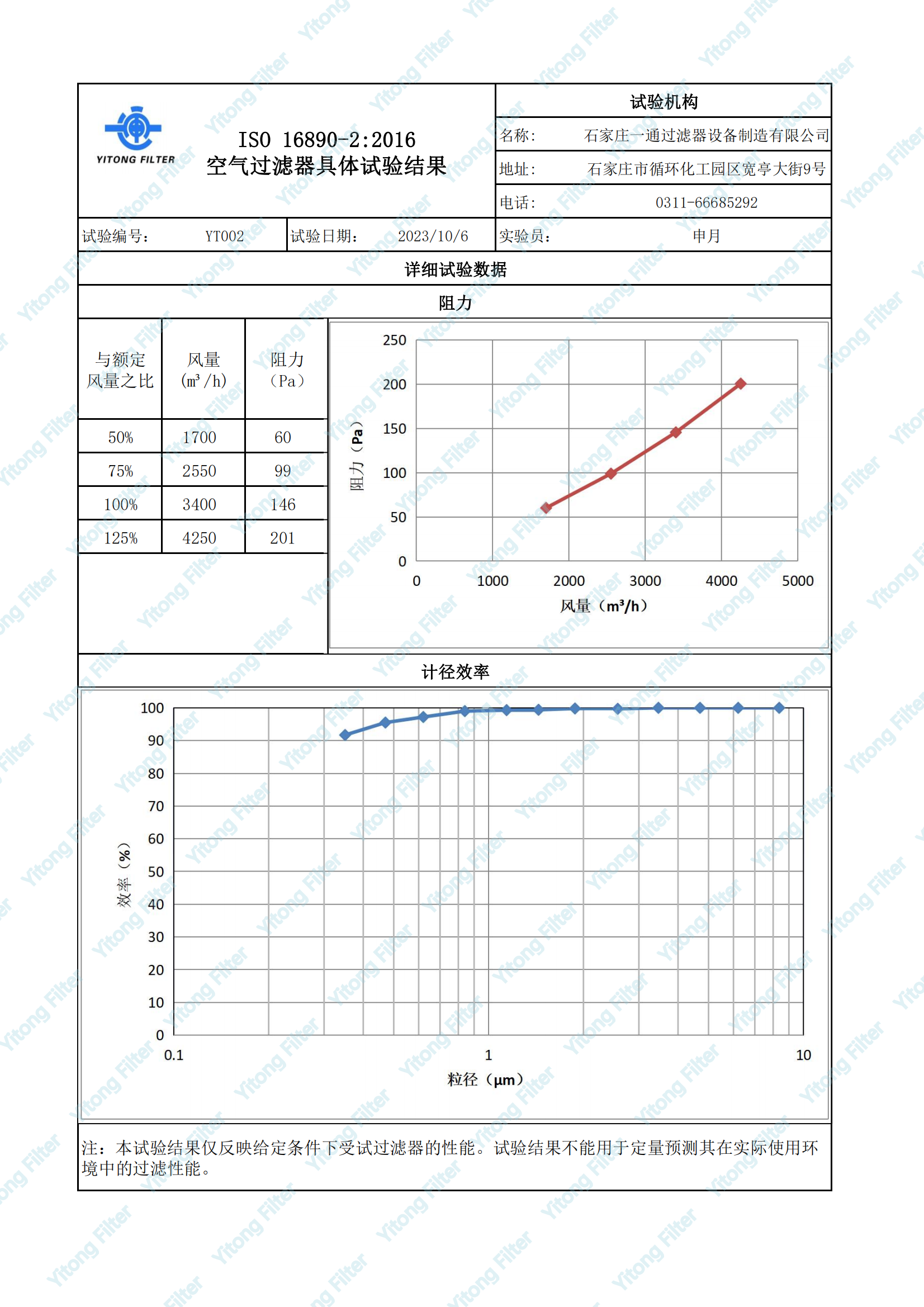 October 12, 2023
October 12, 2023
The H10 V-Bank HEPA Air Filters ordered by the customers have been shipped.
H10 V-Bank HEPA Air Filter Product Detail:
Type: V-bank (4V)
Frame material: ABS + PVC
Filter media: Micro glass fibre paper
Slot gasket: Polyurethane
Filter class: H10 (EN1822)
Dim.: 592mmX592mmX292mm-4V
H10 V-Bank HEPA Air Filter Technical Datasheet
| Type | Size(mm)(HxWxD) | Test Air flow(m³/h) | Initial pressure(≤Pa) | Media area(m²) | Filter grade(EN1822) |
| V-Bank | 592*592*292 | 3400 | 146 | 25 | H10 |
H10 V-Bank HEPA Air Filter Test Report
| Initial pressure Test Report | ||||
| Air flow(m³/h) | 1700 | 2550 | 3400 | 4250 |
| Initial pressure(≤Pa) | 60 | 99 | 146 | 201 |
| Filteration area(m²) | 25㎡ | |||



HEPA stands for High Efficiency Particulate Air, and a HEPA filter is a type of air filter that is designed to remove very small particles from the air. HEPA filters are known for their exceptional efficiency in capturing particles such as dust, pollen, pet dander, smoke, and even microorganisms like bacteria and viruses.
Here are some key characteristics and uses of HEPA filters:
1. Filtration Efficiency: HEPA filters are highly efficient at capturing particles as small as 0.3 microns in size with an efficiency of 99.97%. This makes them effective at removing a wide range of airborne contaminants.
2. Applications: HEPA filters are commonly used in various applications, including residential air purifiers, vacuum cleaners, commercial HVAC (Heating, Ventilation, and Air Conditioning) systems, cleanrooms in industries like pharmaceuticals and electronics manufacturing, and even in some medical settings.
3. Construction: HEPA filters are typically made of a dense mat of randomly arranged fibers, often composed of materials like fiberglass, and are sealed within a frame to prevent air bypass. The dense fiber structure allows them to trap particles efficiently.
4. Maintenance: Regular maintenance is essential to ensure the continued effectiveness of HEPA filters. Over time, as they capture particles, the filters can become clogged and lose efficiency. It's important to replace or clean HEPA filters as recommended by the manufacturer.
5. Allergies and Health: HEPA filters are often used by individuals with allergies or respiratory conditions as they can help reduce allergens and improve indoor air quality. They can also be beneficial in areas with high levels of air pollution or during wildfire events.
6. Notable Variations: Some variations of HEPA filters include ULPA (Ultra Low Penetration Air) filters, which offer even higher filtration efficiency, and HEPA-type or HEPA-style filters, which may not meet the strict HEPA standards but still provide good filtration.
HEPA filters have become increasingly important in modern life, especially as concerns about indoor air quality and airborne contaminants have grown. When choosing a HEPA filter, it's essential to look for filters that meet the appropriate industry standards and match the filter to the specific application to ensure optimal performance.

